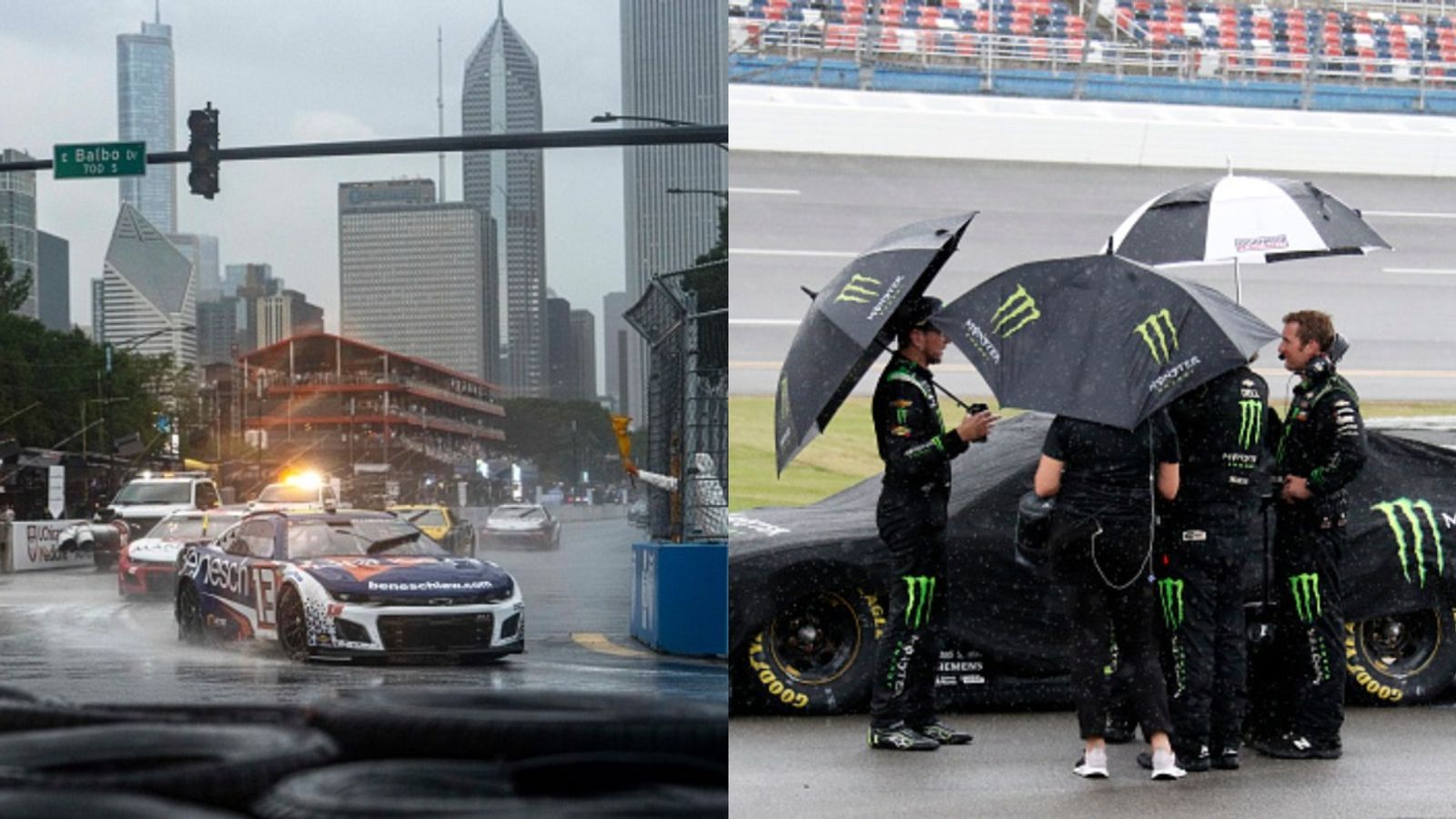During the 2024 NASCAR Cup season, rain impacted six of the 36 races. In some instances, teams were required to switch to wet weather tires, and races like the Daytona 500 had to be rescheduled for the following day. But is rescheduling races due to rain a common practice in NASCAR, A Joe Gibbs Racing insider recently offered some insight.
In a YouTube video posted on the Joe Gibbs Racing channel, the insider shared thoughts on how rain affects races, saying, “NASCAR races get rescheduled because of rain when your tires look like this. Water on the track can cause chaos. In previous years, any amount of rain would postpone a race, but now we have a wet weather tire.”
He went on to explain, “As of now, the wet weather tire is used at road courses and smaller tracks and continues to be tested at some of the bigger tracks. While it can’t handle torrential rain, it has been effective in damp conditions. If it rains at larger tracks or becomes too much at smaller ones, races may be delayed—sometimes for minutes, sometimes hours, and occasionally even days.”
Rain playing spoilsport in 2024
The season opener, the Daytona 500, had to be rescheduled from Sunday to Monday due to persistent heavy rain. The seventh race, the Toyota Owners 400 at Richmond Raceway, was also impacted, with drivers starting on wet weather tires because the track was still damp. The AdventHealth 400 at Kansas also experienced significant delays because of continuous showers.
The Coca-Cola 600 at Charlotte Motor Speedway faced disruptions as well. Kyle Larson, attempting his first double duty by competing in both the rain-delayed Indianapolis 500 and the Coca-Cola 600, made it to Charlotte during a caution but was unable to participate after the race was red-flagged due to ongoing rain and lightning. The event was eventually called off after 249 laps, with Christopher Bell being declared the winner.
Rain also affected the Chicago Street Course, where drivers had to use their wet weather tires. Additionally, qualifying for the FireKeepers Casino 400 at Michigan was canceled due to rain.
While direct cash refunds for fans are not available, NASCAR’s Weather Protection Program provides an option for ticket exchanges. Fans can swap their tickets for a future NASCAR event of equal or lesser value within 60 days of the original event. However, if a race is only postponed to later the same day and the ticket-holder cannot attend, they are not eligible for a ticket exchange.
NASCAR evolving technologies
NASCAR has made significant advancements in track-drying technology over the years. Initially, NASCAR used low-flying helicopters to help dry tracks, a method that was discontinued in Michigan in 1969 after an incident where a damaged helicopter had to be removed from the track. The organization then turned to using race cars to push water to the edges of the track, which was unpopular with drivers.
In response to driver complaints, NASCAR introduced jet dryers mounted on pickup trucks. These vehicles worked by blasting the track with heat up to 1,100 degrees but were highly fuel-intensive, consuming 200 gallons per hour. Looking for a more efficient solution, NASCAR unveiled the Air Titan in 2013, and later upgraded to the Air Titan 2.0, the version that fans are familiar with today. The improved system uses air speeds exceeding 500 mph to scatter water on wet surfaces.


